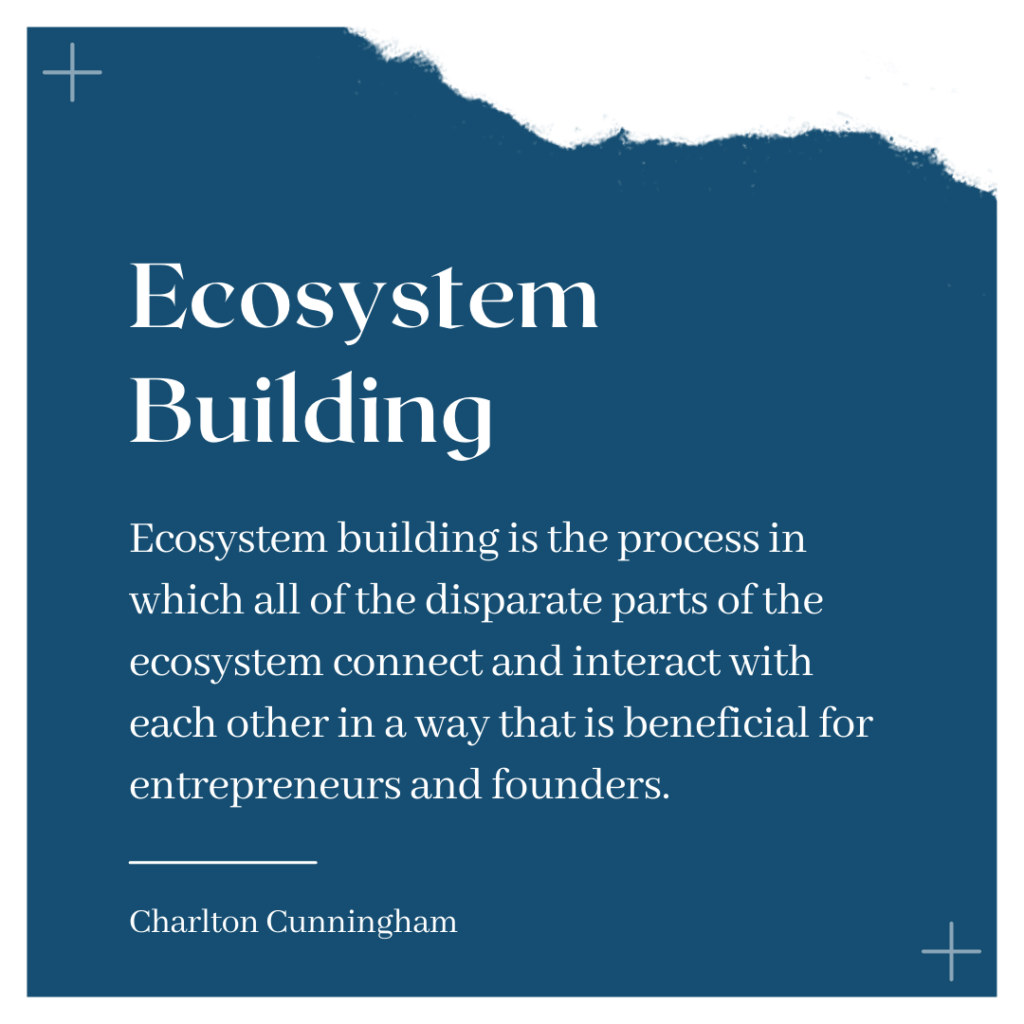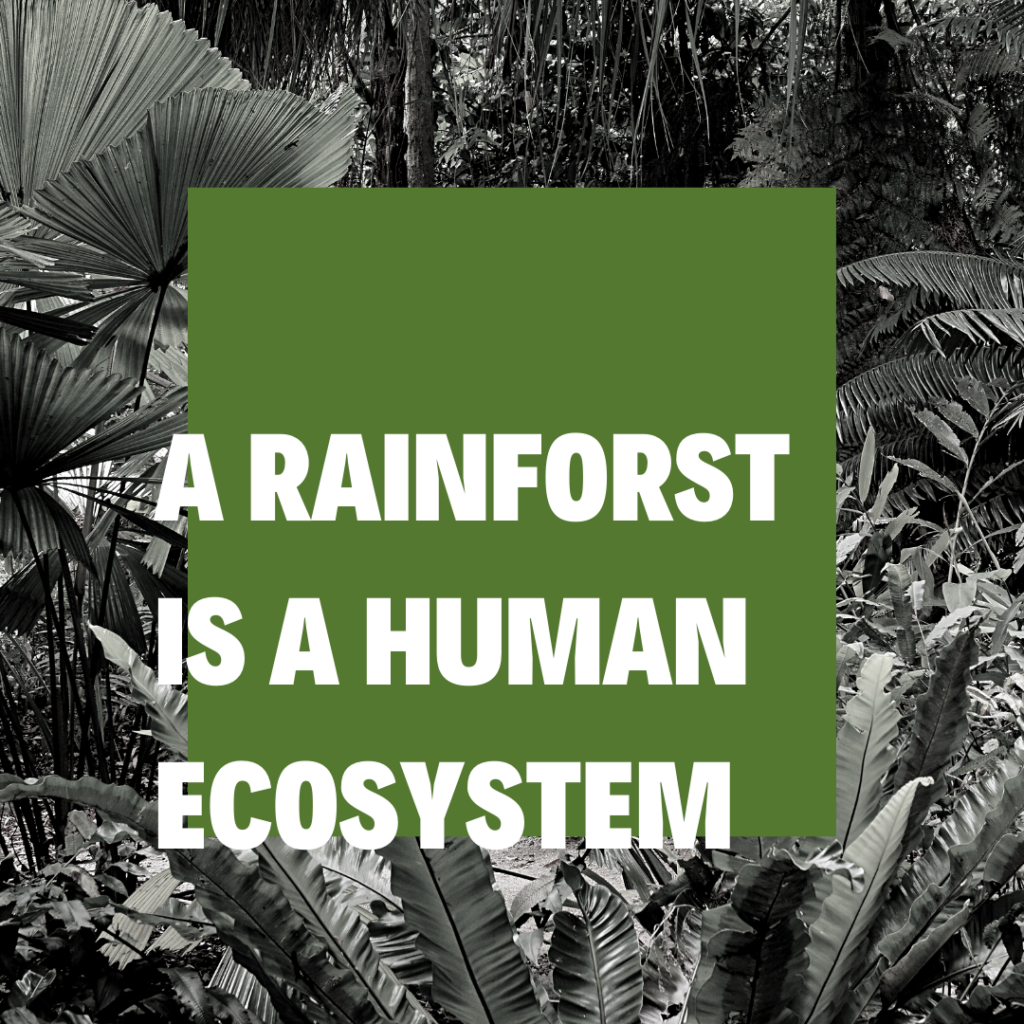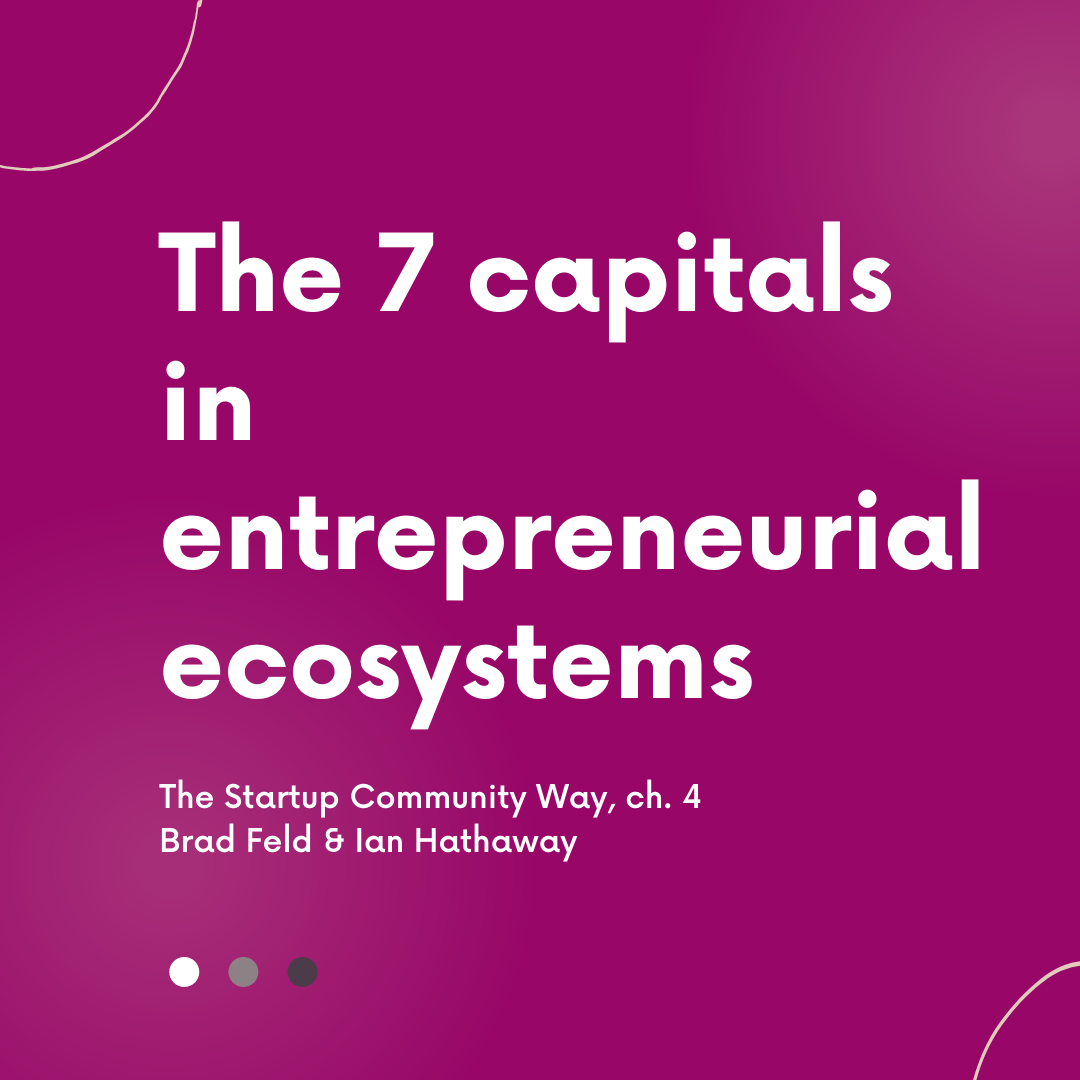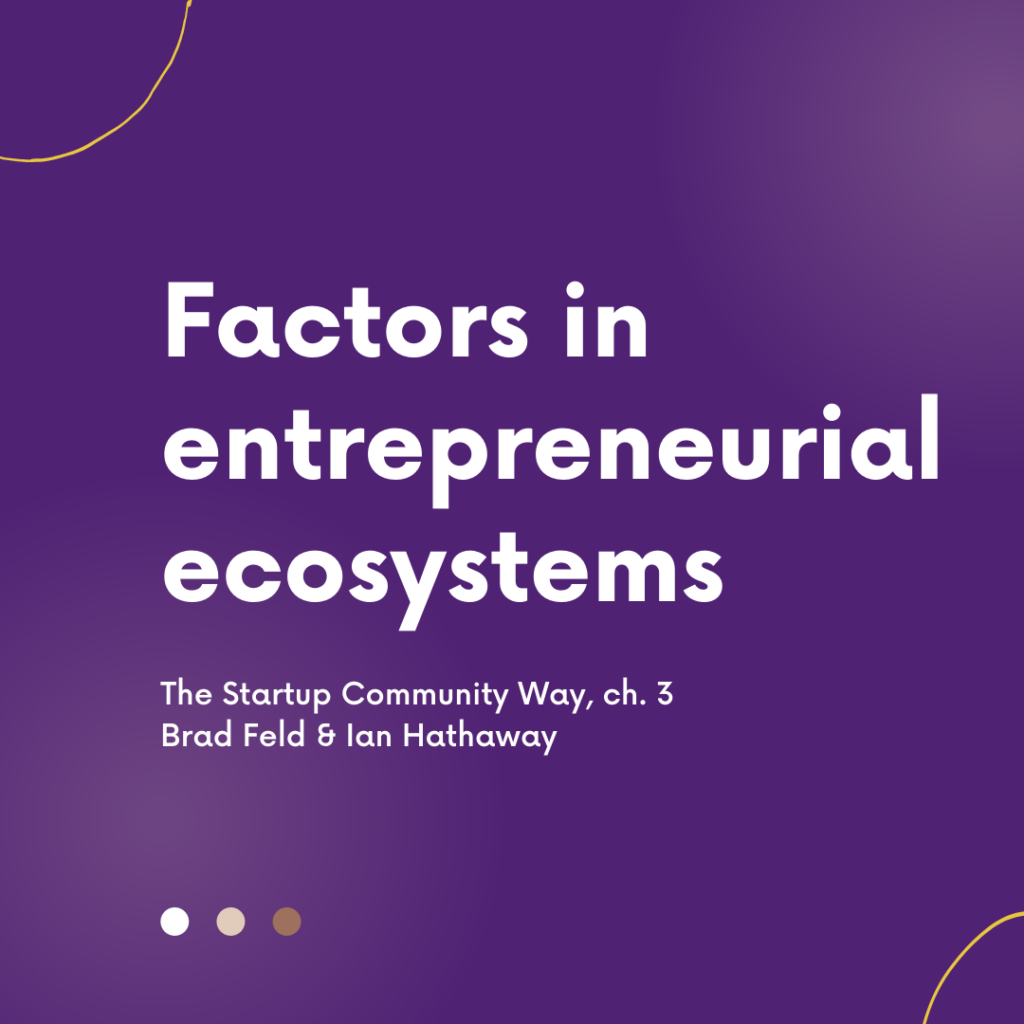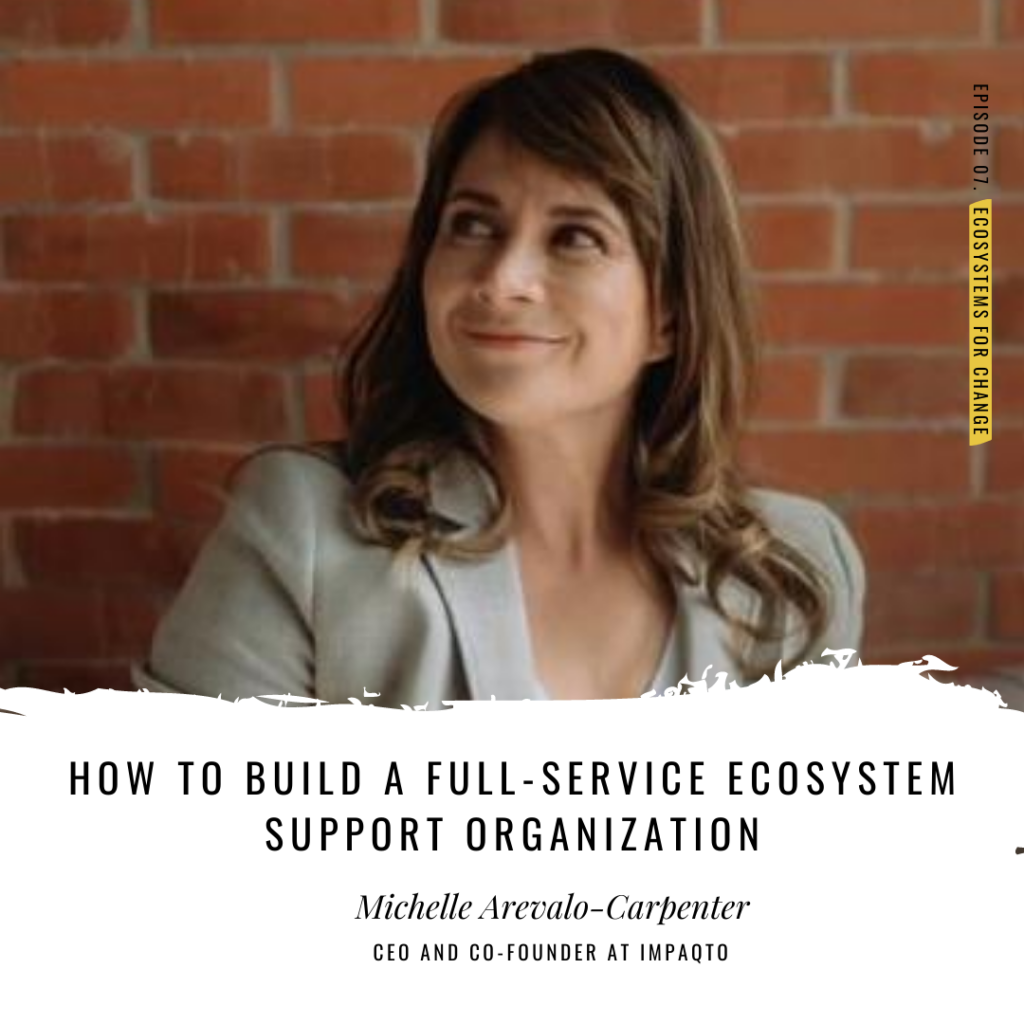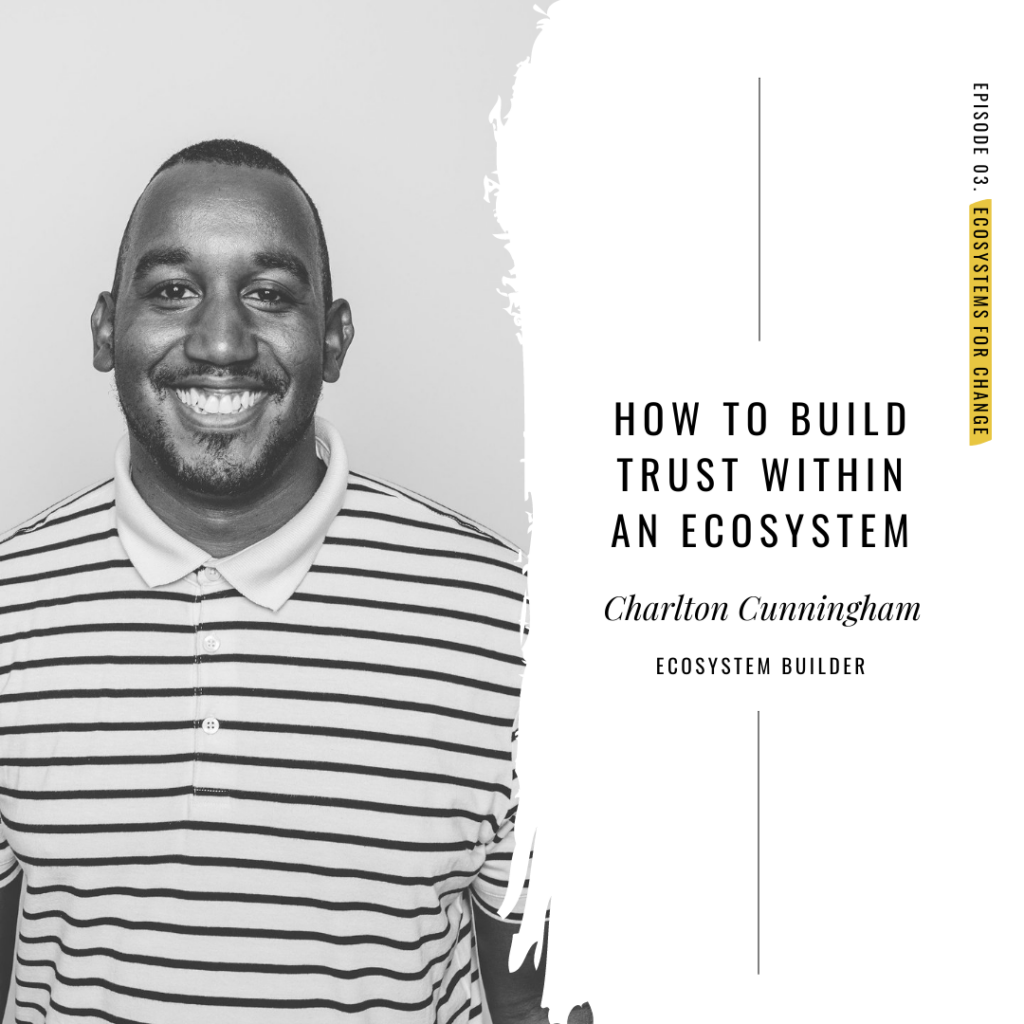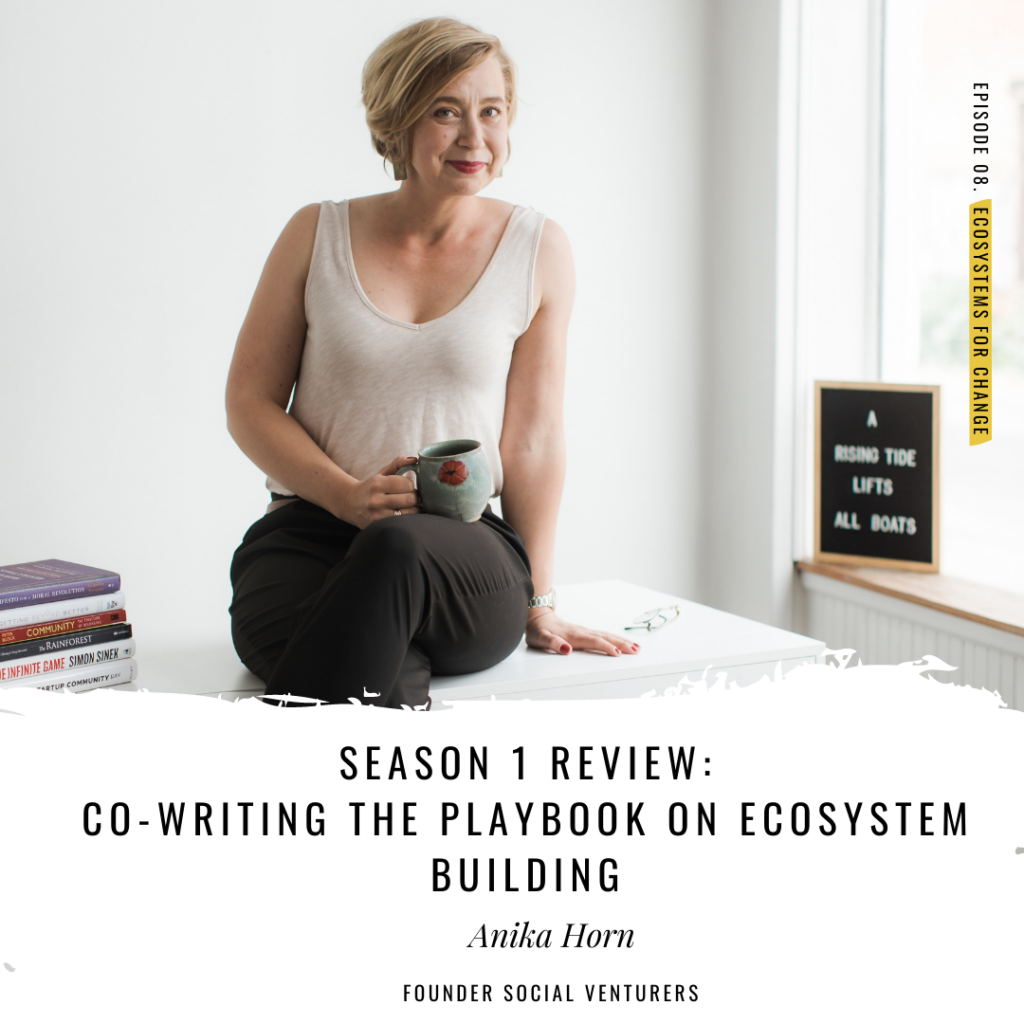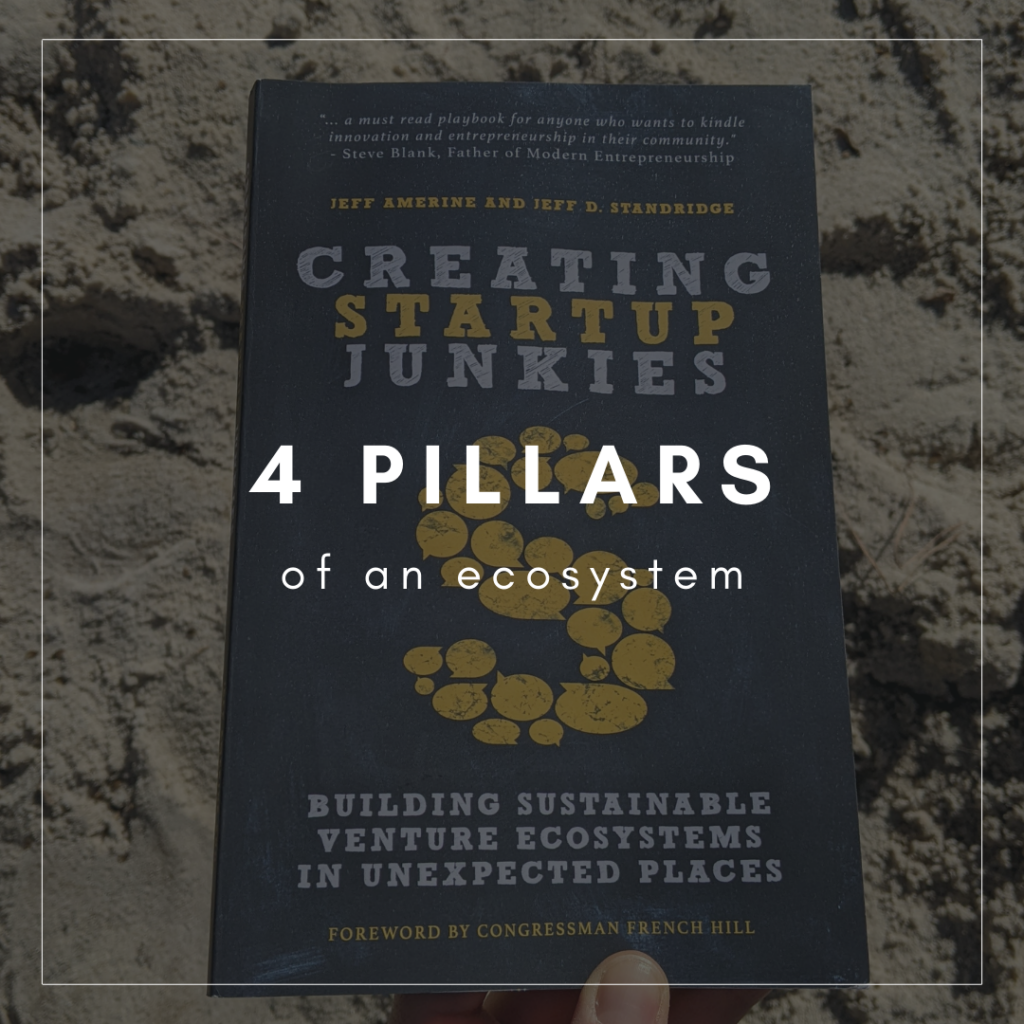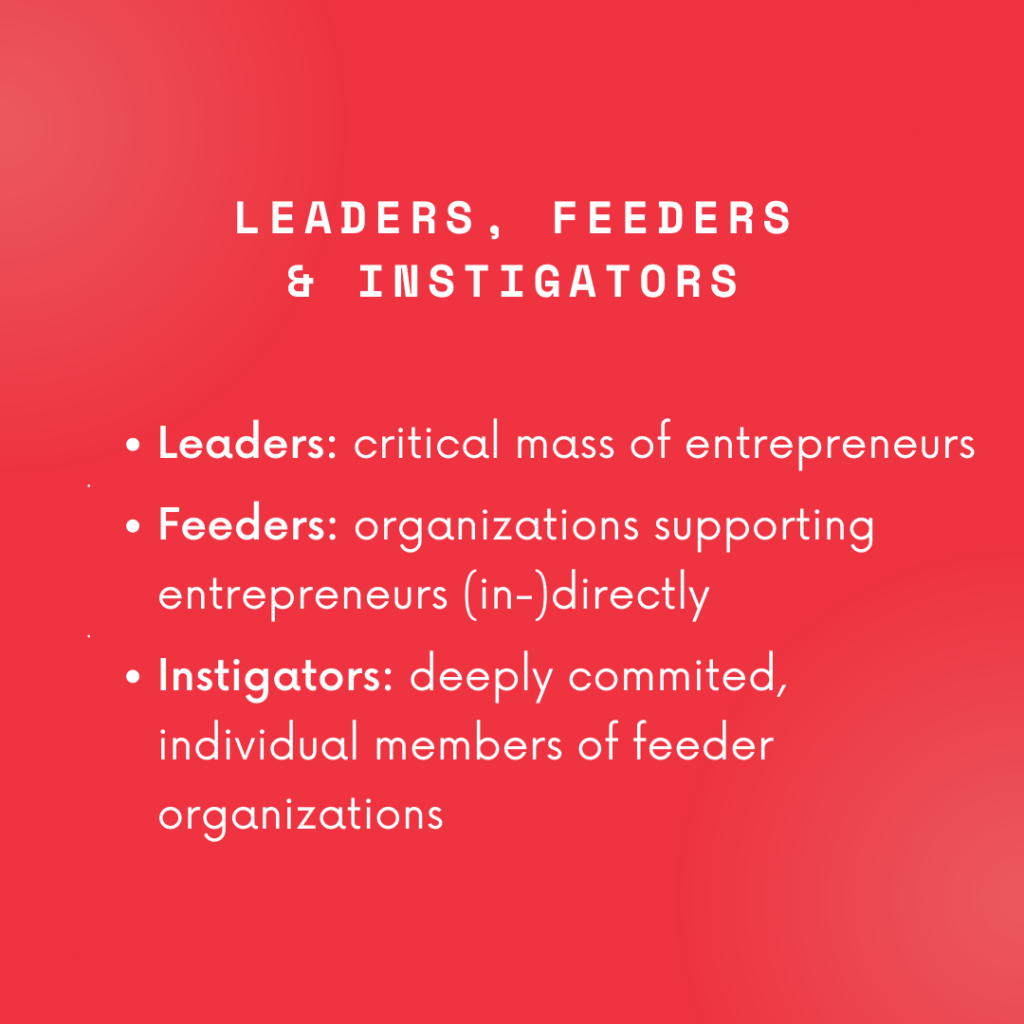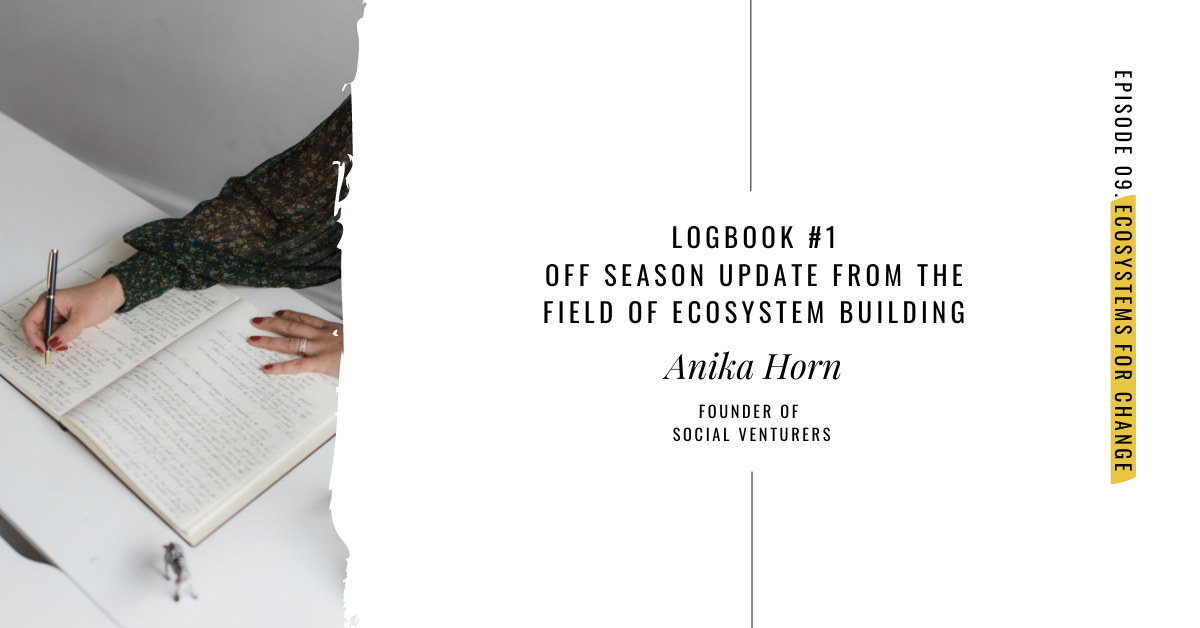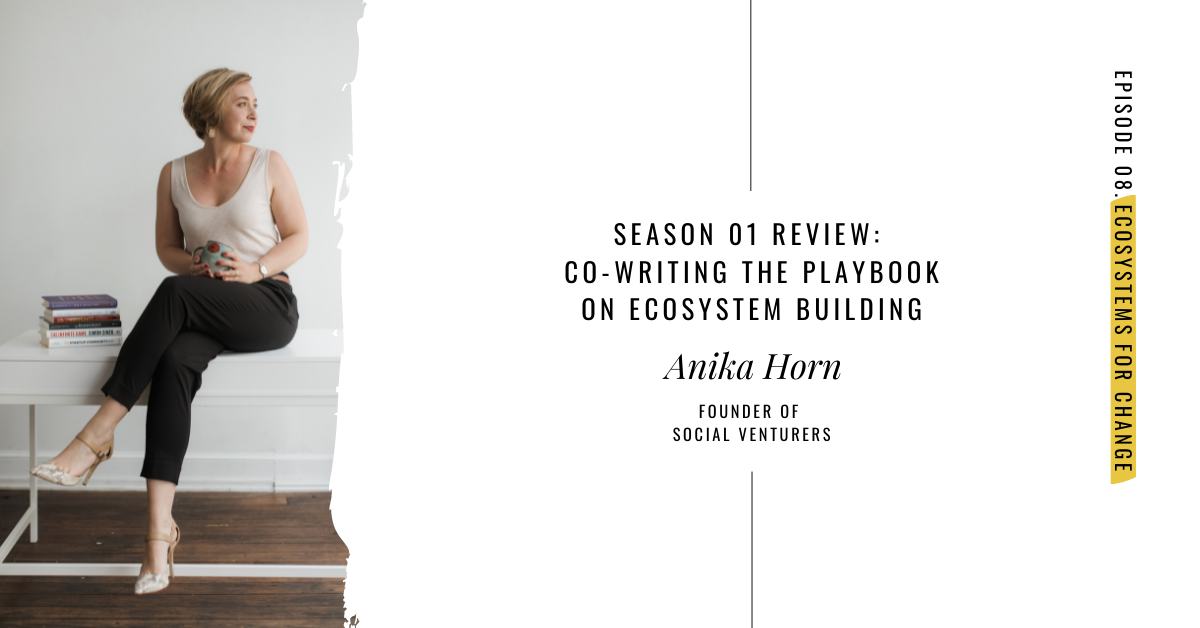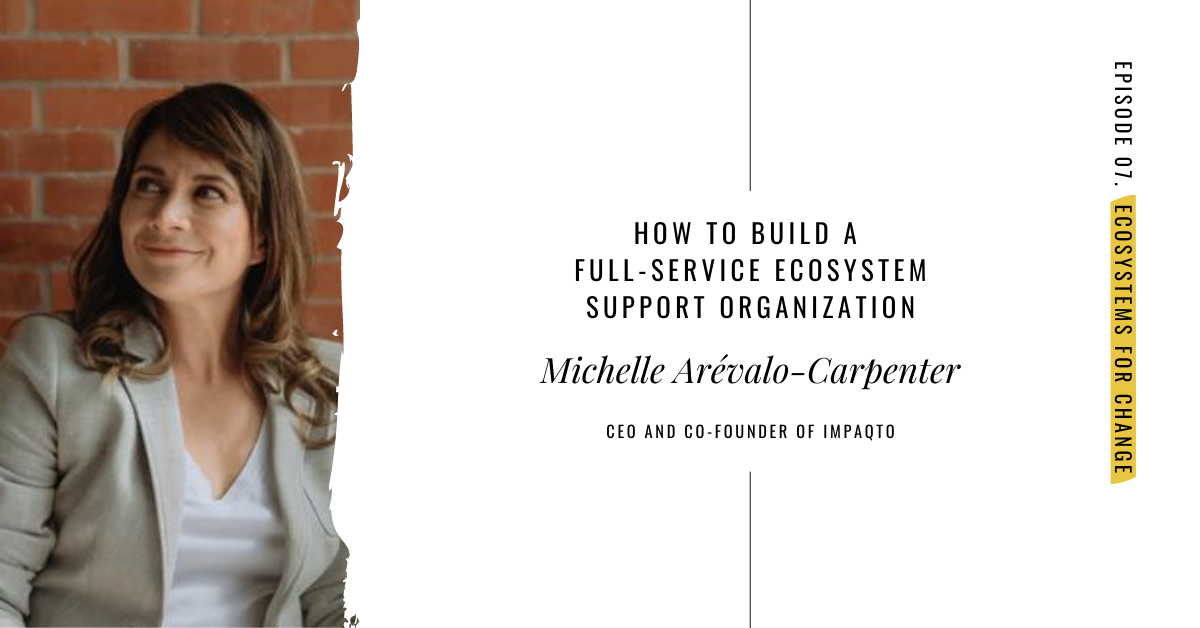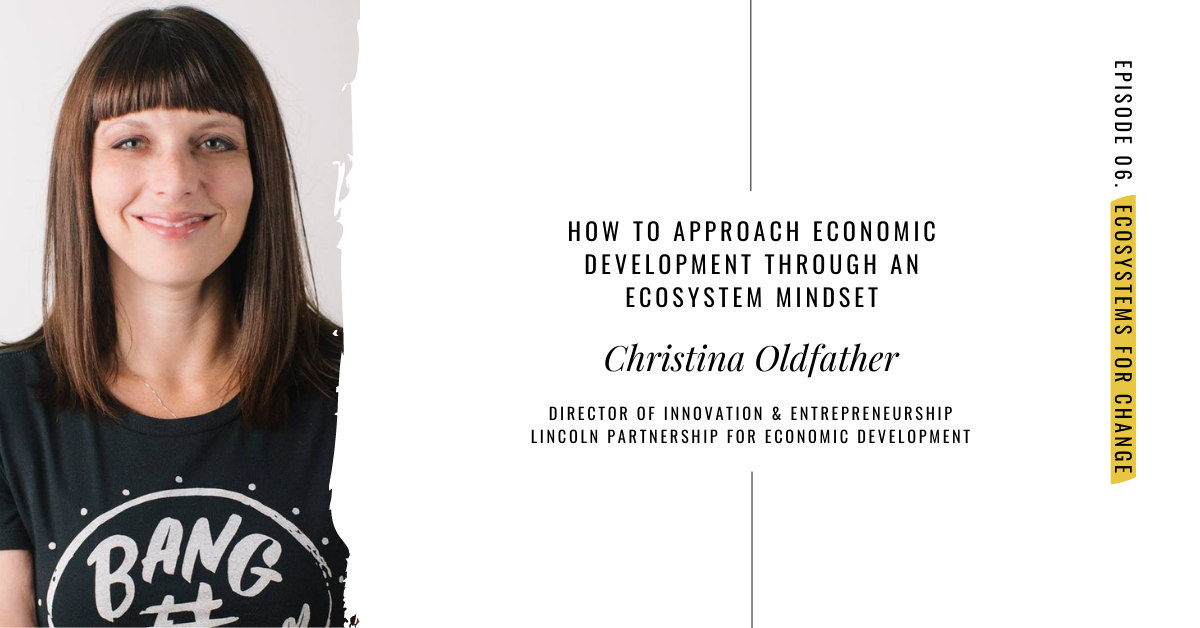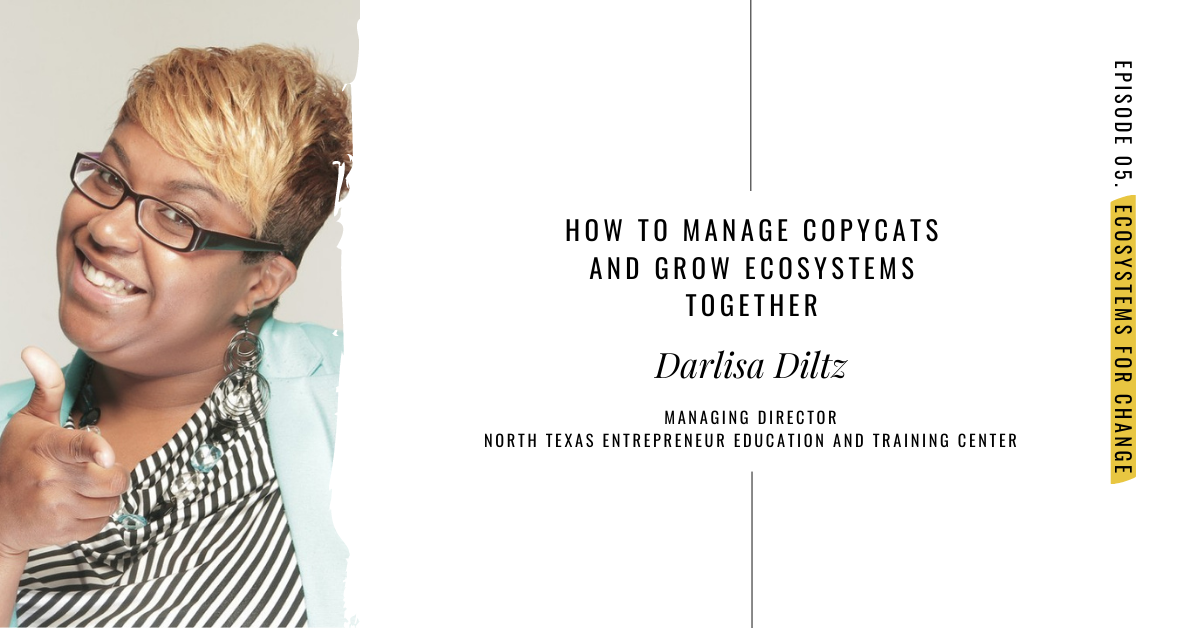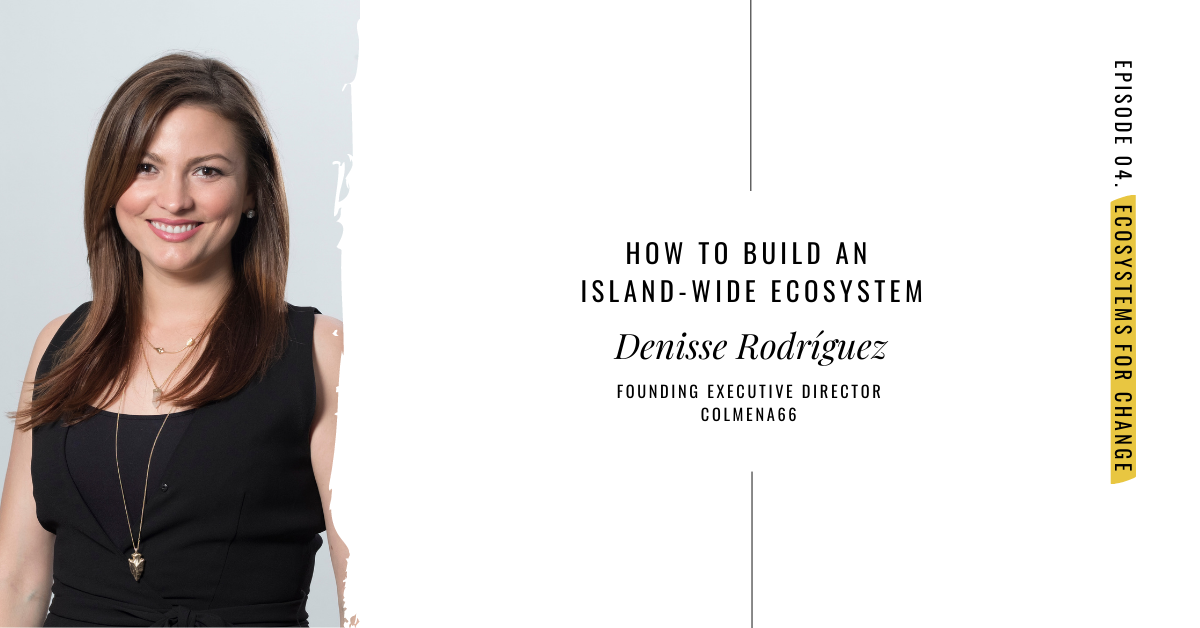“The essence of an entrepreneurial ecosystem is its people and the culture of trust and collaboration that allows them to interact successfully. An ecosystem that allows for the fast flow of talent, information, and resources helps entrepreneurs quickly find what they need at each stage of growth. As a result, the whole is greater than the sum of its separate parts.”
Entrepreneurial ecosystem building is a framework that helps us make sense of the human interactions that affect entrepreneurs in a community. If we want to see entrepreneurs - or changemakers of any kind - thrive, we need to figure out what hinders and what propels their success. After working with entrepreneurs one-on-one and through group programs - work I still enjoy as an advisor and mentor - I realized that in order to make a meaningful difference, I would have to work at a systems level. Taking a systems, rather than an individual or group approach, allows us to improve the conditions under which changemakers in our communities operate.
Different authors - from practitioners to academics - have developed definitions to put their stakes in the ground about what ecosystem building is and how we should go about it. We absolutely need a shared language if we want to have meaningful conversations about this topic. Definitions make excellent anchors for some of those conversations but beware! They’re not the end-all be-all. To me, understanding how we might uncover and intentionally help build supportive communities around changemakers is a practice best learned from those who are already doing the work.
In season 1 of Ecosystems for Change, you meet six practitioners who hold vastly different official titles in different parts of the world. Instead of trying to arrive at one definition that all six could agree on, I welcomed six different perspectives on our work, each of them adding a distinct perspective.
- Debbie Irwin shared her approach to fostering entrepreneurship in rural Virginia by intentionally building up community capital.
- Charlton Cunningham explained how his upbringing as an army brat helped him internalize the value of building trusting relationships.
- With Denisse Rodríguez I talked about her regional efforts to build an entrepreneurial ecosystem across the entire island of Puerto Rico.
- Darlisa Diltz let us in on her work in Dallas-Forth-Worth and discussed how she handles competition in the entrepreneurial support space: Worship playlists and good food - need I say more?
- In my conversation with Christina Oldfather, we tried to shed light on the perceived juxtaposition between economic development and ecosystem building.
- Michelle Arevalo Carpenter took us on her journey from human rights lawyer to ecosystem builder that led to her building a full service ecosystem support organization, Impaqto.
3 key lessons from season 1
1. Take a lean startup approach
How often have we given this advice to the entrepreneurs we work with? And how often - hand on heart - have we followed it ourselves? If we truly put the needs of those we serve at the front and center of our work, then we need to listen closely to what these changemakers need. Take a lean approach of curious inquiry, lots of listening, experimenting and iterating along the way.
When Michelle Arevalo Carpenter returned to her home country she met with hundreds of peers to find out what the real issue was for her fellow impact makers: loneliness. People needed community and were looking for a place in which they belonged. Thus, Impaqto was born as Ecuador’s first privately owned co-working space and certified B Corp and has since blossomed into a full-service ecosystem building service.
2. Approach your work with a mindset of abundance, patience and generosity
As ecosystem builders we approach each conversation with generosity and openness - willing to give before we get. But of course, that generosity - or shall we say abundant mindset - is not always reciprocated.
In episode 3, Charlton Cunningham gave us a word of warning: Not everyone who claims to be in it FOR the entrepreneurs really is. As ecosystem builders, we’re positive & optimistic in nature. We assume that we ALL put the needs of entrepreneurs ahead of our own agendas and those of our organizations, but of course there are always players in the ecosystem who don’t live by this rule. So at all times, stay critical, do your thing and protect entrepreneurs. Remember that - especially when it comes to bad actors in the ecosystem, you can’t control what other people do, you can only control how you respond. But that should not stop you from offering to help and keeping an open mind because sometimes the ecosystem just isn’t mature enough. That’s what I learned from my conversation with Michelle Arevalo-Carpenter:
“An ecosystem is like a wild plant. So, if you go and ask a wild plant to give you flowers when it's not it's time, then you don't hate it. You don't take it personally. You understand that that plant is also in a process. If you start moving away from that heartbreak narrative into a narrative where you understand that an ecosystem is constantly changing, that has led us to consider working again with someone who might have given us a heartbreak before, but they also have their own processes. They also learn. They also understand. That's how you give everyone two or three chances, as many as you need, to really understand that we're not always the same people when we meet at different points in time.”
3. Build trust and genuine relationships
The third lesson I took away from this season is this: When in doubt, start with community and building trust:
- Michelle didn’t set out to build a co-working space that later turned into an investment fund and consultancy and entrepreneurial programming. She wanted to counteract loneliness and build a community where other changemakers in Ecuador felt that they belonged.
- Darlisa highlighted that first and foremost, she and her team are holding space for a community of idea-stage founders. She wants to nurture early talent and give them a safe space to try things out and learn the basics in the safety of the Texas Entrepreneurship and Education Center.
- Charlton explained in detail how important it is to show up regularly, in-person, offer help and support, and always have an open ear for what’s needed. Before anything else, he started out by nurturing trust among the players in his Atlanta ecosystem.
- Christina worked in the office for economic development but spent her early days hanging out with entrepreneurs and asking them “How can I help?” to build trust and build genuine relationships with the people she wanted to serve.
For a full recap of season 1, listen to my Season 1 Review: Co-Writing the Playbook on Ecosystem Building.
Key resources from season 1
Reading
- Get Together: How to build a community with your people, Bailey Richardson, Kevin Huynh, Kai Elmer Sotto
- The Business of Belonging: How to Make Community Your Competitive Advantage, David Spinks
- The Startup Community Way: Evolving an Entrepreneurial Ecosystem, Brad Feld and Ian Hathaway
- Entrepreneurial Ecosystem Building Playbook 3.0
- The Overstory, Richard Powers
- Creating Startup Junkies: Building Sustainable Venture Ecosystems in Unexpected Places, Jeff Amerine and Jeff D. Standridge
- The Rainforest: The Secret to Building the Next Silicon Valley, Victor W. Hwang and Greg Horowitt
- The Entrepreneurship Ecosystem Strategy as a New Paradigm for Economic Policy: Principles for Cultivating Entrepreneurship, Daniel Isenberg (2011)
Organizations
- Startup Champions Network
- Center on Rural Innovation
- Ewing Marion Kauffman Foundation
- Kiva
- Global Shapers Community
- Global Good Fund Fellowship
Events
- Tom Tom Festival
- Startup Champions Network Spring Summit
Browse Season 1
Ecosystems For Change: Logbook #1
I have been writing monthly Logbooks ever since I started Social Venturers.
It’s been my way of keeping myself accountable and sharing with other people what I’ve been working on the month before, what I was planning, and how people could get involved.
Read MoreS01E08 – Season 01 Review: Co-writing the Playbook on Ecosystem Building
As I look back at Season 1, there were three main themes that really stood out to me, and today, I’m revisiting my conversations from the season to illustrate those essential points.
Read MoreS01E07 – How to Build a Full-Service Ecosystem Support Organization with Michelle Arévalo-Carpenter
We are talking with Michelle Arévalo-Carpenter about how she set out to fight loneliness for change-makers in Ecuador and ended up building Ecuador’s first co-working space for Impact entrepreneurs with her co-founder Daniela Peralvo. Since then, Impaqto has become Ecuador’s first B Corp, expanded to five locations, and has grown into much more than a co-working space.
Read MoreS01E06 – How to Approach Economic Development Through an Ecosystem Mindset with Christina Oldfather
Christina Oldfather is a seasoned ecosystem builder and economic developer. We talk about the shared objectives and differences between economic development and ecosystem building as approaches to fostering entrepreneurship. And Christina spills the beans on how her ecosystem convenes and how they support founders post-acceleration.
Read MoreS01E05 – How to Manage Copycats and Grow Ecosystems Together with Darlisa Diltz
Darlisa shares what happens when the work you’ve been doing for years suddenly becomes all the rage, but powerful players don’t take the time to truly understand their communities’ needs, about bad actors in the ecosystem who outright copied her programs. And what advice Darlisa has about nurturing community and becoming a truly inclusive ecosystem builder.
Read MoreS01E04 – How to build an island-wide ecosystem with Denisse Rodríguez
Today, we’re headed to Puerto Rico to talk with Denisse Rodríguez. Denisse left her high-flying career on Wall Street to return to her home country where she’s now dedicated to making entrepreneurship more accessible for founders all across the island.
Read More